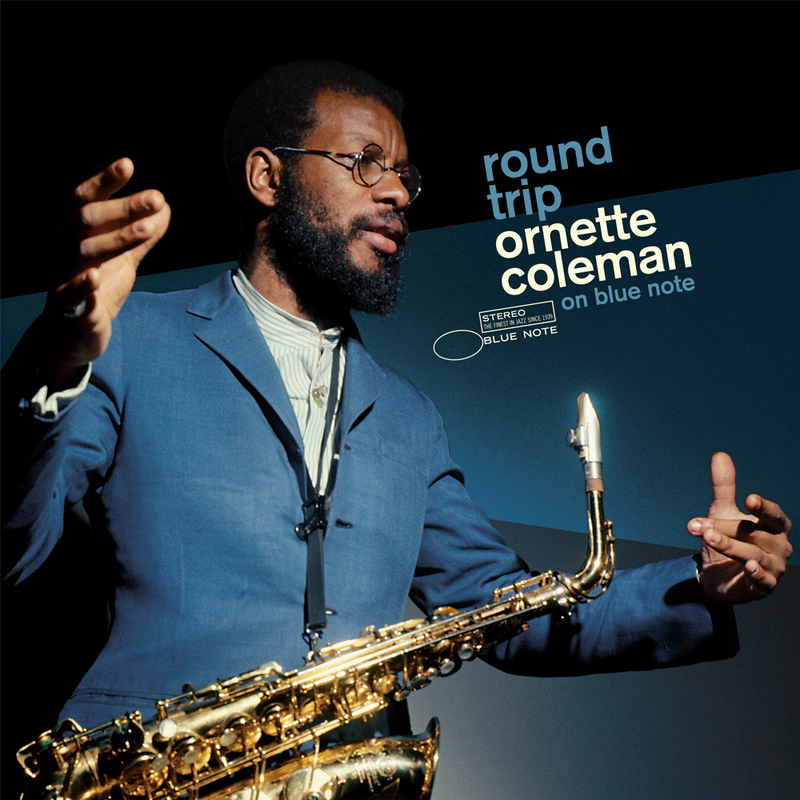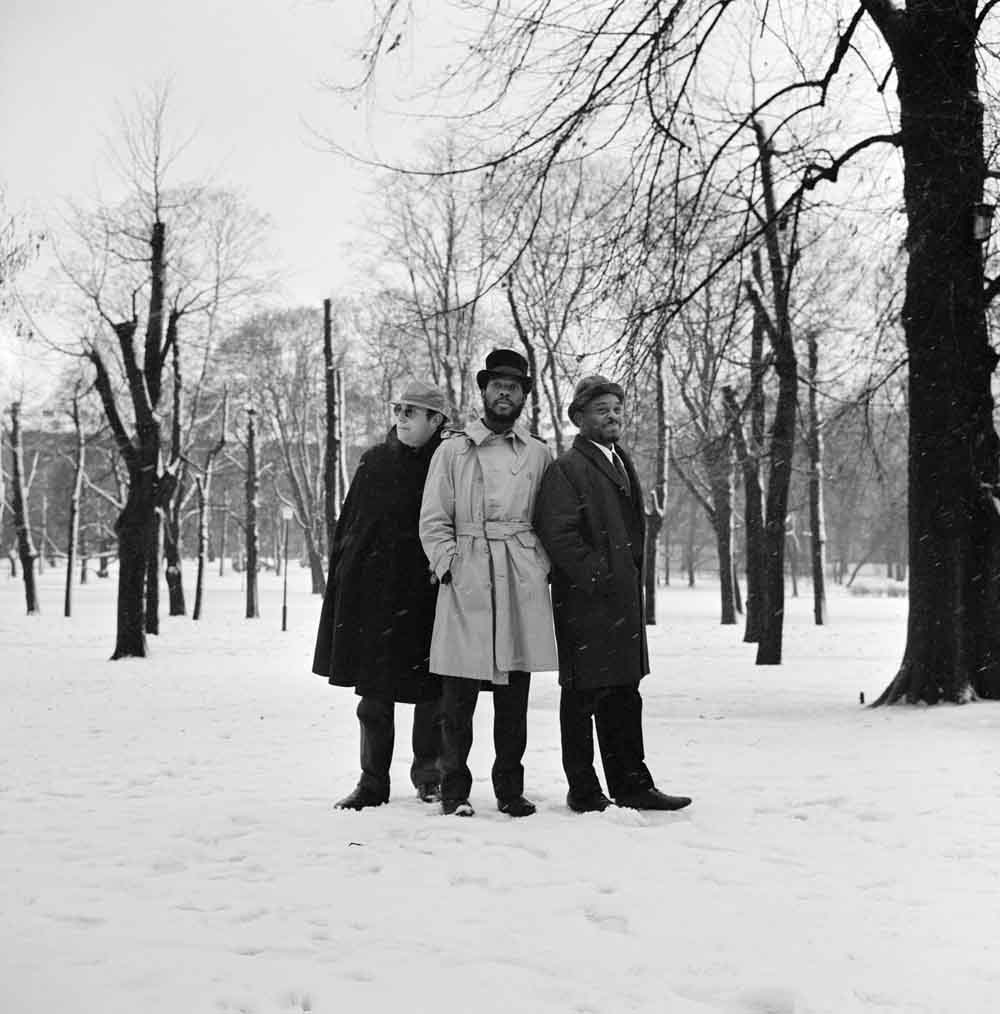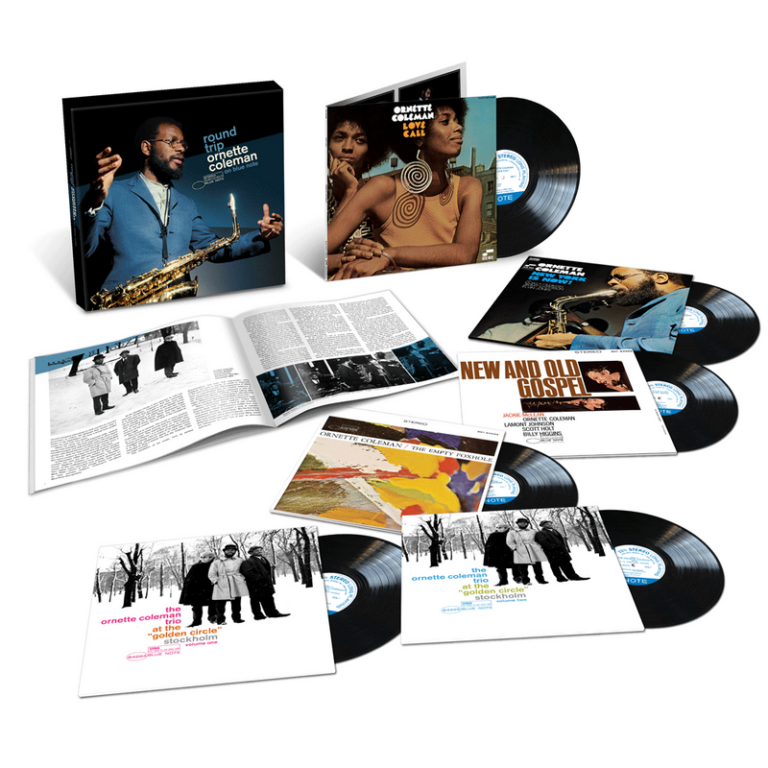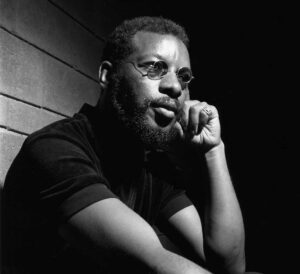Almost ten years on from the multi-instrumentalist and composer’s death, Ornette Coleman’s gifts to jazz are still revealing themselves. He turned the music on its head, breaking the shackles of the Great American Songbook and making fans and friends of both Sonny Rollins and John Coltrane, the latter even requesting that Ornette perform at his funeral.
But after the seismic first five years of his establishment onto the international jazz scene, Ornette’s 1965–68 Blue Note period is far less understood and analysed. The sumptuous boxed set “Round Trip” gathers everything he released on the label during this fascinating era: two volumes of “At The ‘Golden Circle’ Stockholm” (1965), “The Empty Foxhole” (1966), “New York Is Now!” (1968), “Love Call” (1968), and his one and only sideman appearance on Jackie McLean’s “New And Old Gospel” (1967).

Drummer Charles Moffett, a Texas high-school comrade of Coleman’s who would later name his bassist son Charnett partly after Ornette, and classically-trained bassist David Izenzon lit up the two live volumes which also featured a very rare sole producer credit for Blue Note co-founder Francis Wolff.
From the club owner’s touching opening announcement which seems to disarm Ornette, “Golden Circle” – complete with its famous cover – is a remarkable document. Moffett erupts with joy during Ornette’s ingenious solo on “Faces And Places”. Izenzon starts low in the mix but quickly displays his unique talents, excelling on the bizarre waltz “European Echoes” and also “Dee Dee”. For Ornette’s part, his playing is constantly progressing, apparently now taking in Middle Eastern scales.

In his famous 1971 interview with Arthur Taylor in classic jazz book “Notes And Tones”, Ornette shed some light on why he started playing the trumpet and violin on “Golden Circle Volume 2”: “I didn’t want to be known as the best saxophone player, or the best this or that, just to have a gig.” He was the perpetual seeker, and the manic violin and bass duel with Izenzon on “Snowflakes And Sunshine” is a highlight of “Round Trip”.
In spring 1966, Ornette, Izenzon and Moffett did a famous month at Ronnie Scott’s club in London. But returning to New York City, Ornette made a change in the drum department. His son Denardo had been living with his mother Jayne Cortez in Los Angeles, and at six he had asked Ornette for a shotgun for his birthday. Ornette instead suggested a drum set.
At the age of ten, Denardo suddenly found himself recording “The Empty Foxhole” at Rudy Van Gelder’s studio with his dad and newly returned Charlie Haden on bass. Ornette raved about his son’s playing but was amazed at the cynicism around the father/son dynamic, blaming “insecurity and jealousy” on the part of critics and fellow musicians.
The album begins with the remarkable “Good Old Days”, essentially a seven-minute Ornette solo, wherein young Denardo plays exactly what’s required even while Haden lays done the groove alone. Meanwhile “Sound Activation” proves that his son was already a great listener, while “Faithful” is a classic Ornette ballad.
Early in 1967, Ornette received the Guggenheim Fellowship award for composition and began writing his symphonic work “Skies Of America”. He also published a famous Downbeat article urging the acceptance of difference, abandonment of commercialism and plea for musicians’ fair pay, and then reunited with childhood friend and tenor saxophonist Dewey Redman for the albums “New York Is Now!” and “Love Call”. John Coltrane regulars Elvin Jones and Jimmy Garrison joined on drums and bass, and the two records produced at least two bona-fide Ornette masterpieces: “Broad Way Blues”, later covered by Pat Metheny, and “Toy Dance”, serving up a brilliant contrast in Ornette and Redman’s soloing styles.
Ornette and Denardo performed at Martin Luther King Jr’s Poor People’s March in May 1968, a month after he had finally bought his first home at 131 Princes Street in SoHo, a third-floor loft space which became a mecca for many musicians. It had been a period of great personal and musical progression for Ornette. “Round Trip” encapsulates all of these changes and proves he had stuck to his guns in some style and continued to view jazz as The Adventure.

Ornette Coleman Round Trip
Available to purchase from our US store.Matt Phillips is a London-based writer and musician whose work has appeared in Jazzwise, Classic Pop and Record Collector. He’s the author of “John McLaughlin: From Miles & Mahavishnu To The 4th Dimension” and “Level 42: Every Album, Every Song”.
Header image: Ornette Coleman. Photo: Francis Wolff / Blue Note Records.


